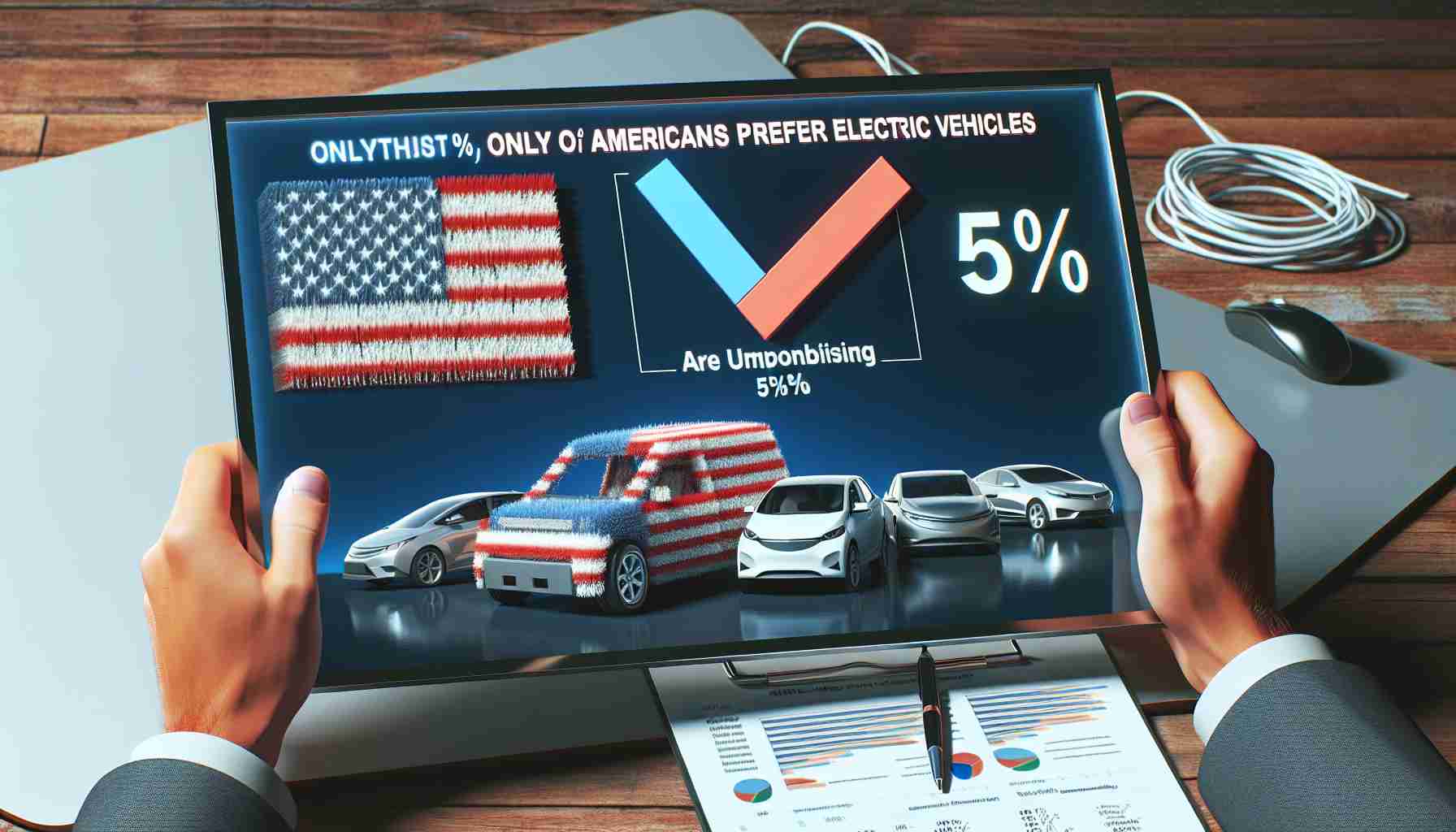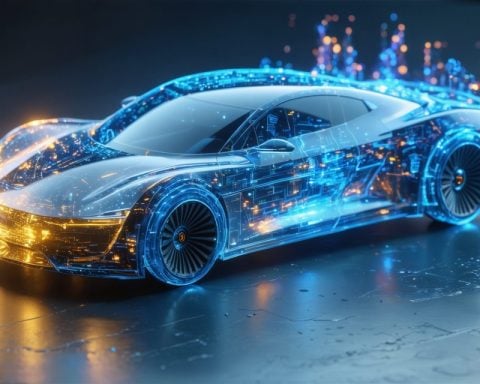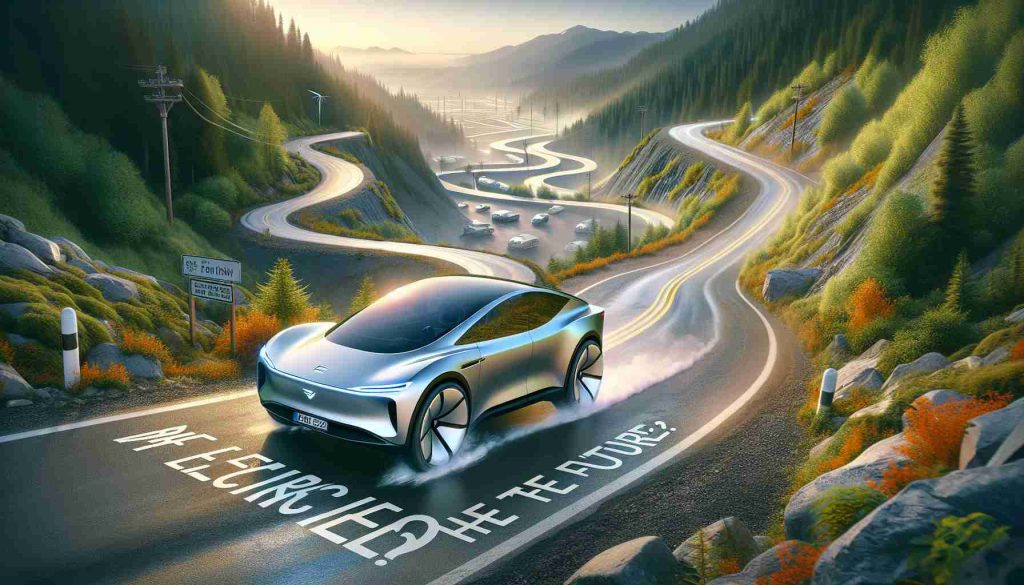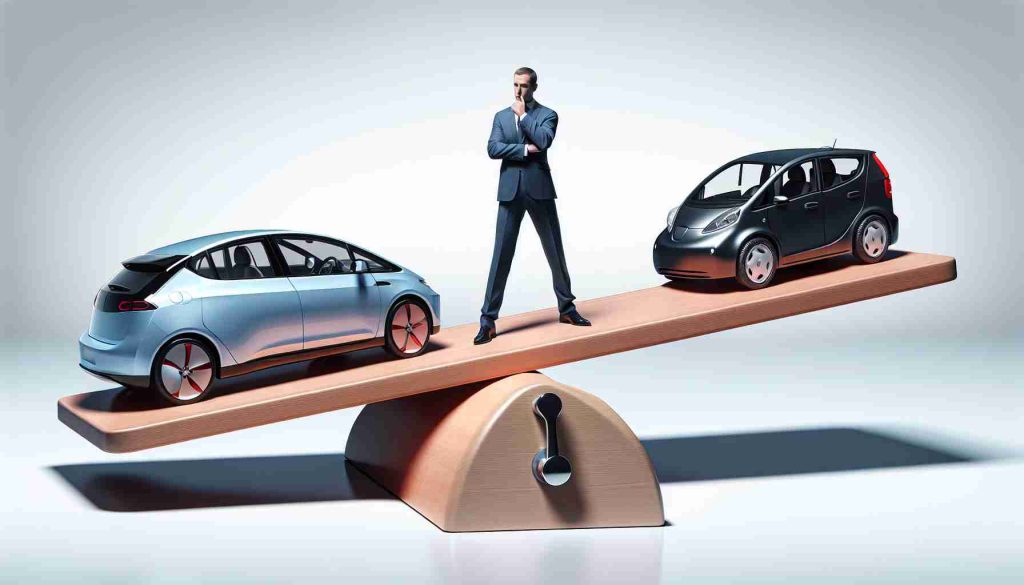Survey Insights on EV Preferences
A recent survey reveals that a mere 5% of Americans are considering electric vehicles (EVs) as their next car. This unexpected finding prompts a deeper look into what drives consumer choices in the auto market today.
Despite the increasing push for green technology, many consumers remain skeptical about switching from traditional gasoline-powered vehicles to their electric counterparts. Several factors contribute to this hesitance, including concerns over charging infrastructure, battery longevity, and the higher upfront costs associated with EVs.
While automakers have invested significantly in EV marketing and awareness, this survey indicates that consumer interest is still lukewarm. Many respondents expressed a desire for familiar, efficient vehicles that do not require a major shift in their driving habits or lifestyle.
Moreover, it appears that the allure of electric vehicles may not be enough to sway public opinion completely. Potential buyers are weighing practicality and personal preferences over the perceived benefits of an electric car. As the auto industry evolves, it will be crucial for manufacturers to not only provide innovative technologies but also address the deep-rooted concerns of consumers.
In conclusion, while the push for electrification is ongoing, automakers may need to rethink their strategies to boost EV appeal among skeptical American car buyers.
Broader Implications of Electric Vehicle Consumer Preferences
The hesitance of American consumers to invest in electric vehicles (EVs) extends beyond individual preferences; it significantly impacts societal norms, cultural values, and the global economy. The slow adoption of EVs reflects deeper-rooted traditions in car ownership, where many Americans view their vehicles as symbols of independence and freedom, often associated with the open road and a culture reliant on fossil fuels.
If consumer skepticism persists, it could thwart the U.S. government’s ambitious climate goals. Transitioning to electric vehicles is pivotal, as transportation accounts for nearly 29% of greenhouse gas emissions in the United States, according to the Environmental Protection Agency. The continued reliance on gasoline-powered vehicles not only stalls progress towards sustainability but also impedes the development of necessary charging infrastructure and renewable energy initiatives.
Environmental ramifications could be severe, especially as climate change elevates the need for collaborative global action. The reluctance to adopt EVs could have long-term significance, fostering dependence on oil, thereby influencing international trade patterns and geopolitical relations tied to fossil fuel resources.
Looking ahead, trends indicate that innovations in battery technology and enhanced consumer education may eventually bridge the gap between skepticism and acceptance. Companies that prioritize addressing consumer concerns—especially regarding practicality and cost—will likely lead the way in shaping a more sustainable transportation landscape.
Why Are Americans Hesitant About Electric Vehicles? Insights from Recent Survey
Understanding the Gap in EV Adoption
A recent survey has unveiled a notable trend in consumer preferences regarding electric vehicles (EVs). Despite the growing emphasis on sustainability and environmental concerns, only 5% of Americans are actively considering an EV as their next vehicle purchase. This statistic raises important questions about what influences consumer decision-making in the automotive market today.
Key Factors Influencing Consumer Reluctance
The survey highlights several pivotal factors contributing to consumer hesitance regarding EV adoption:
1. Charging Infrastructure: Many potential buyers express concerns about the availability and convenience of charging stations. For many, the worry about running out of charge and the time taken to refuel is a significant deterrent.
2. Battery Longevity: Uncertainties surrounding battery lifespan and performance have made consumers wary. Issues like battery degradation and significant replacement costs further complicate the decision to switch to an electric model.
3. Higher Upfront Costs: Even with government incentives, the initial purchase price of EVs remains relatively high compared to traditional gasoline vehicles. Many consumers prioritize budget and practicality over potential long-term savings on fuel and maintenance.
Consumer Preferences in the Current Landscape
Interestingly, respondents indicated a preference for conventional vehicles that align with their established driving habits. The idea of transitioning to EVs requires a lifestyle shift that not all consumers are ready to undertake. For many, familiar and efficient gasoline-powered vehicles continue to reign supreme.
Automakers’ Challenge: Addressing Consumer Concerns
Automakers are investing heavily in marketing campaigns to promote EV technology and its benefits. However, these efforts may not be sufficient without directly addressing consumer concerns. Companies need to actively engage with consumers to provide solutions to practical issues such as:
– Improving Charging Infrastructure: Partnerships with local governments and businesses to enhance the charging network could alleviate consumer worries.
– Enhancing Battery Technology: Continuous advancements in battery tech that promise longer lifespans and faster charging times could boost consumer confidence.
Future of Electric Vehicles: Trends and Predictions
As the auto industry shifts towards electrification, several trends and predictions can be drawn from current consumer attitudes:
– Increased Focus on Sustainability: As global awareness of climate change grows, consumers may gradually shift preferences towards EVs if their concerns are adequately addressed.
– Financial Models: Consumers may respond positively to innovative financing or leasing models that reduce upfront costs and provide flexible ownership options.
– Integration of Smart Technologies: As vehicles become increasingly connected, integrating smart tech that enhances the driving experience could positively influence buyer perceptions of EVs.
Limitations and Considerations
Despite favorable environmental impacts, the road to widespread EV adoption is fraught with challenges. Key limitations include:
– Market Readiness: The existing automotive market structure and infrastructure may not be fully equipped to support a rapid transition to electric mobility.
– Consumer Education: There remains a gap in knowledge about the operational advantages of EVs over traditional vehicles that manufacturers need to fill through education and outreach.
Conclusion: Rethinking Strategies
In conclusion, while automakers are pushing for a swift transition to electric vehicles, these latest survey insights indicate that a more nuanced approach may be necessary. Strategies must be re-evaluated to enhance EV attractiveness and alleviate consumer apprehensions, particularly surrounding infrastructure and costs. The future of the electric vehicle market will depend not only on innovation but also on understanding and addressing the core concerns of potential buyers.
For more information and updates about the automotive industry and electric vehicles, visit Auto Industry News.
















